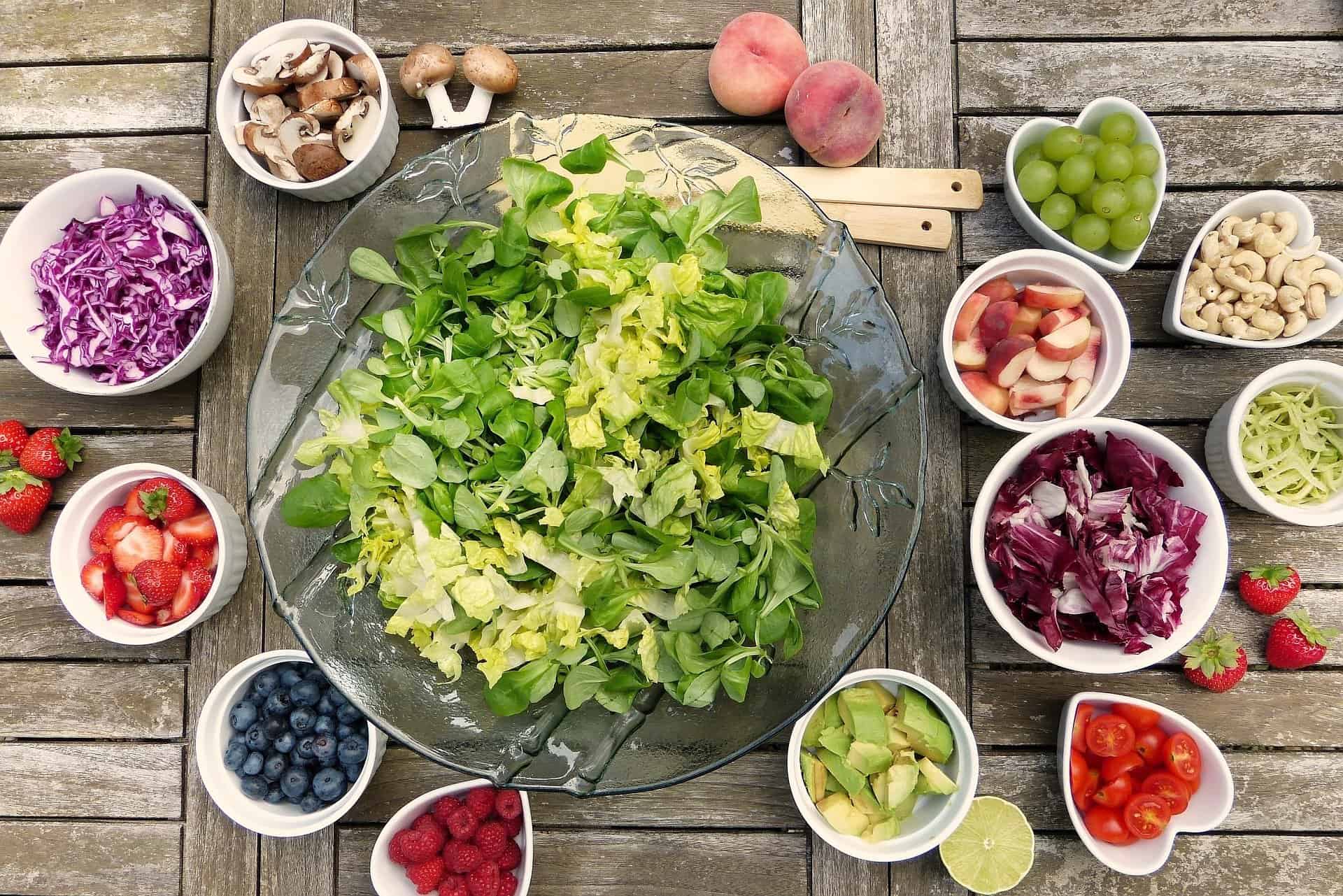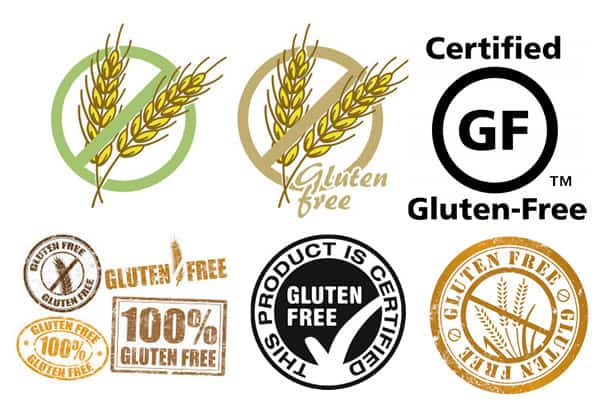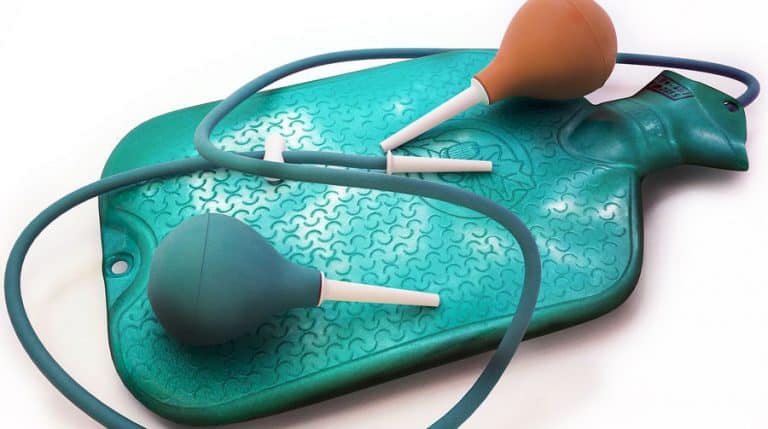Healing the Gut Naturally
By Abby Courtenay
Hands up if you think that daily bloating, cramps and either diarrhea or constipation (or both) are normal? Now put your hand down and continue reading, because these are definitely not things to live with day in and day out. Let’s learn how you can heal your gut naturally and banish these symptoms forever!
Make sure there are no underlying conditions
First things first, before you decide to change your diet to ease symptoms, go for a checkup with your doctor so that they can help you eliminate any serious concerns relating to your symptoms.
Several diseases and disorders are related to gut health symptoms, such as
- Celiac disease
- Inflammatory bowel disease (IBD)
- Ulcerative colitis
- Crohn’s disease
- Irritable bowel syndrome (IBS)
- Certain types of cancers
Once you get the all clear from your healthcare provider, it’s time to assess your diet and lifestyle. In order to do this, you need to measure what you are currently doing and then slowly make changes.
We said slowly! Resist the urge to make too many changes at once. This will (a) mean you won’t be able to pinpoint what helps and what doesn’t and (b) you might actually make matters worse (we’ll explain in more detail a bit later).
Track your diet and lifestyle
Now you need to create a detailed record of your diet and symptoms, you can use this template to make notes. Or make your own version, use an app, or simply track your meals in a notebook.
The things to you want to note include:
Diet:
- Diet (types and quantities)
- Notes about meals (i.e. are they regular, skipped or rushed, eaten in the car, etc)
- Include details, like herbs and spices frequently used
- How much water you drink
- What other drinks you have
- Including any additives like sweeteners to teas and coffees
Other:
- Supplements and medications routinely taken
- Including time taken
- How much?
Symptoms:
- Symptoms experienced (with a degree of severity)
- Toilet habits (timing and consistency)
- Energy levels (on a scale of 1-10)
We know this looks like a bucket load of things to note, but you don’t need to do this for long. Seven days is more than enough time to notice a pattern. You may even have an inkling of what is causing the problem, but this will give you concrete proof!
What warning signs should I look out for in my diet record?
Now that you have this detailed record, get out a highlighter and highlight the following warning signs.
Diet
- Little or no fruits, vegetables, whole grains and legumes
- Lots of ultra processed foods
- Irregular and skipped meals
- Eating quickly and on the go
How much water you drink
- Drinking little or no fresh water
- Drinking mainly coffee, soda or fruit juices
- Adding lots of artificial sweeteners to your hot drinks
Other:
- Taking antibiotics unnecessarily
Have a look at patterns and commonalities between what you eat and drink and your symptoms. Now start making the following changes:
Steps towards healing your gut naturally
- What foods heal your gut?
Take the summary of your diet and compare it to what the American Dietary Guidelines 2020-2025 recommends:
- 2 cups of vegetables/ day
- 2 cups fruit/ day
- 3 ounces of whole grains/ day
- 1.5 cups legumes (beans, lentils, chickpeas etc) per week
How did you do? Are you on track or are you falling woefully short like 80-100% of Americans?
These foods have a few things in common:
They are a significant source of fiber.
Humans did not fully digest and absorb fiber and a portion of it travels to the gut. Your microbiome (or the community of bacteria that live in your gut) ferment the fiber as a food source and produce some beneficial substances (like short-chain fatty acids) that nourish the gut cells.
The microbiome ferments various forms of fiber, these include soluble fiber, resistant starch and probiotics.
Some examples of foods with prebiotics are leeks, asparagus, chicory, Jerusalem artichokes, garlic, onions, wheat, oats, corn and soybeans.
We do not classify resistant starches as fiber. They are starches that resist digestion, thus they reach the colon. They occur naturally in cooked and cooled potatoes, raw bananas, legumes and partly milled seeds.
Top tip: Include a variety of fermented foods like sauerkraut, yoghurt, kefir, kimchi or tempeh in your regular diet. These will add healthy bacteria into your current bacterial population.
Slowly increasing foods rich in these types of fibers will ensure that your microbiome is well fed, yielding a healthy gut. Keep in mind to do this slowly. Increasing your fiber too quickly can lead to excessive amounts of gas and cramps. This happens because a byproduct of the fermentation process is gas. Some gas is normal but you want to avoid worsening existing symptoms.
They contain a significant amount of antioxidants and phytonutrients.
Phytonutrients are specialized plant nutrients that give us health benefits. Some gut symptoms are directly linked to inflammation (especially diarrhea). These antioxidants and specialized nutrients help to reduce inflammation in our gut and in our bodies. Imagine inflammation being like a damaging fire and antioxidants are little firefighters that keep it under control.
- Limit ultra-processed foods (UPFs) from your diet
Up to 50% of the food we eat regularly is ultra-processed. The problem with UPFs is that they lack the original nutrients. They are food-like products made from a variety of ingredients and additives derived from food.
UPFs displace more nutritious whole foods and are often low in protein and fiber and high in concentrated sugars and fats.
Try to balance these foods with nutrient-dense foods. Whole food sources contain a variety of beneficial nutrients that work synergistically with one another. It’s not always a single nutrient that we are missing, but the synergistic effect that the food matrix has on the human body.
- Reduce your added sugar intake
Humans are naturally drawn to sweet foodstuff, but too much can affect our health. Added sugars increase the calorie content of the food without increasing the nutritional quality. This leads to foods that are often energy dense, but nutrient-poor. Besides this, foods that are high in added sugar are usually not very high in fiber. A lack of fiber will lead to a rapid change in your microbiota, which can have long-lasting detrimental effects.
- Eat meals at regular times and avoid skipping meals
The body thrives off regularity. If you eat at an unanticipated time (i.e. not on your regular schedule), then your internal clocks change to expect food at this new time. Our body becomes used to certain digestive hormones and enzymes to receive and digest food optimally. Each time you eat off schedule, your internal clock needs to reset. This puts you back a step and makes it difficult for your body to keep up with what you are eating. Try to have set meal times and stick to your schedule.
Top tip: Not everyone needs to eat 3 meals and 2 snacks per day. Your ideal number of mealtimes depends on your individual preferences and needs.
- Take your time to eat mindfully
When you eat or drink quickly (or drink from a straw) you may gulp in air without even noticing it. This can lead to bloating and painful cramps. Slow down, enjoy your meals and reap the benefits.
- Drink enough water
Having enough water is vital for gut health because without water the contents of your stool hardens and cannot be excreted effectively (you become constipated). Being constipated can increase your risk for haemorrhoids and diverticular disease, which can eventually become inflamed. Having regular bowel movements (with an optimal consistency) is essential for health and improved quality of life and is accurately associated with the richness of your microbiome and its composition.
- Limit non-nutritive sweeteners
Many people choose to replace added sugars with non-nutritive sweeteners (NNSs) to maintain (or try to lose) weight. In most instances, NNSs are deemed to be safe, but this does not mean that they are healthy. Besides displacing more nutrient-dense food in your diet, overconsumption of non-nutritive sweeteners may lead to a change in the composition of your microbiome, specifically saccharin, sucralose and stevia. Ideally, we should strive to reduce our sweetness tolerance and reduce our intake of sweetened foods and drinks (regardless of how they are sweetened). The less sweet foodstuff you consume, the less you will crave.
- Avoid taking antibiotics unnecessarily
It’s vital that we limit the unnecessary use or overuse of antibiotics. Antibiotics kill the pathogenic bacteria that make you sick, but they also kill beneficial probiotics. If you need to take an antibiotic (as prescribed by your healthcare provider), also take a probiotic. Ideally, wait 2-4 hours after taking four antibiotics for best results.
Your microbiome can take up to one year before it returns to normal after a course of antibiotics. So, do not take antibiotics unnecessarily and remember to always follow your doctor’s instructions regarding the dose and length of antibiotic use.
How long will it take to heal my gut?
The length it will take you to feel better will vary amongst individuals, but my personal advice is to give it at least 2 weeks to 1 month to assess the impact. There are so many factors that can affect the time it takes for you to heal (including if you have taken antibiotics like mentioned above). Give yourself some time and focus on the journey of rebalancing your diet and lifestyle.
Do I need to take supplements?
A good multi-vitamin and mineral supplement paired with a multi-strain probiotic supplement that contains between 1-10 billion CFUs can go a long way to healing your gut, especially if you have nutrient deficiencies and imbalances.
Conclusion
The gut is an interesting, complex and incredibly important organ that many of us take for granted, because we don’t need to think about digestion in order for it to take place.
If we look after it well and nourish it using these evidence-based methods, we will definitely reap the benefits and heal our guts naturally. The more knowledge you gain about your body, the better you will understand exactly what you need to eat to live the best version of your life possible!
References
Chaix, A., Manoogian, E., Melkani, G. and Panda, S., 2019. Time-Restricted Eating to Prevent and Manage Chronic Metabolic Diseases. Annual Review of Nutrition, 39(1), pp.291-315.
Chen, X., Zhang, Z., Yang, H., Qiu, P., Wang, H., Wang, F., Zhao, Q., Fang, J. and Nie, J., 2020. Consumption of ultra-processed foods and health outcomes: a systematic review of epidemiological studies. Nutrition Journal, 19(1).
Costa de Miranda, R., Rauber, F. and Levy, R., 2020. Impact of ultra-processed food consumption on metabolic health. Current Opinion in Lipidology, 32(1), pp.24-37.
Di Rienzi, S. and Britton, R., 2019. Adaptation of the Gut Microbiota to Modern Dietary Sugars and Sweeteners. Advances in Nutrition, 11(3), pp.616-629.
Dietaryguidelines.gov. 2021. [online] Available at: <https://www.dietaryguidelines.gov/sites/default/files/2020-12/Dietary_Guidelines_for_Americans_2020-2025.pdf> [Accessed 7 June 2021].
Elvers, K., Wilson, V., Hammond, A., Duncan, L., Huntley, A., Hay, A. and van der Werf, E., 2020. Antibiotic-induced changes in the human gut microbiota for the most commonly prescribed antibiotics in primary care in the UK: a systematic review. BMJ Open, 10(9), p.e035677.
McNabney, S. and Henagan, T., 2017. Short Chain Fatty Acids in the Colon and Peripheral Tissues: A Focus on Butyrate, Colon Cancer, Obesity and Insulin Resistance. Nutrients, 9(12), p.1348.
Vandeputte, D., Falony, G., Vieira-Silva, S., Tito, R., Joossens, M. and Raes, J., 2015. Stool consistency is strongly associated with gut microbiota richness and composition, enterotypes and bacterial growth rates. Gut, 65(1), pp.57-62.
Disclaimer: While our team of medical expert writers makes every effort to convey the correct, relevant, and most up-to-date information, you should never disregard advice given to you by your medical practitioner or delay seeking medical assistance because of something you have read on Gutsify or received in correspondence from Gutsify. Please refer to our Terms and Conditions.







